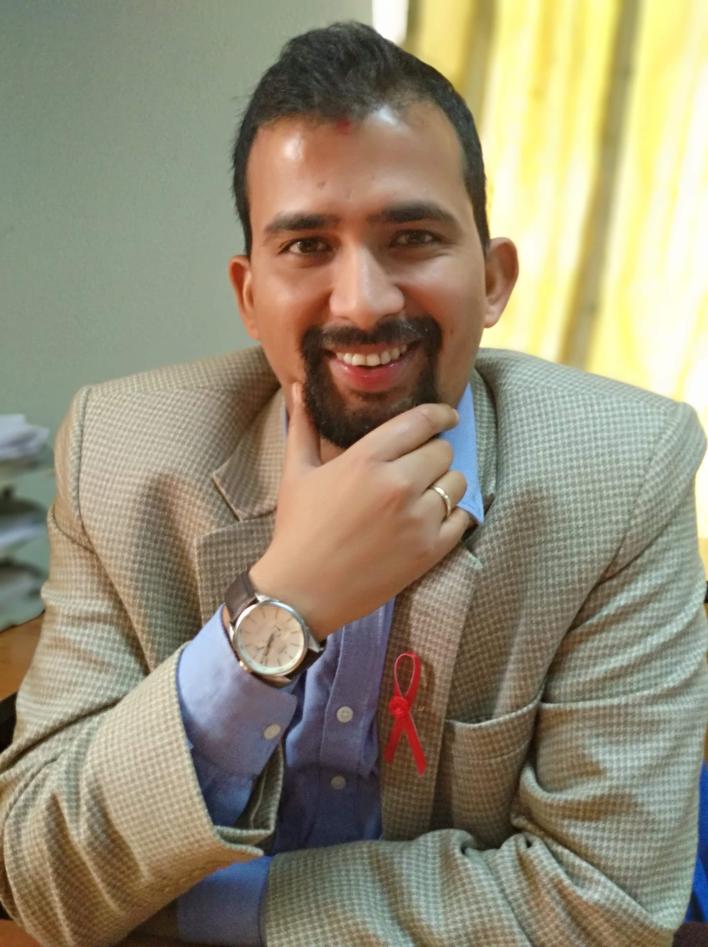Mental Health Issues and Exposure to Violence Among the LGBPTIQ population in Nepal
Sexual or gender minorities in Nepal experience mental health issues due to widespread violence and stigmatization. A group of researchers from the University of Bergen (UiB) and Nepal will investigate whether peer counseling can improve mental health and reduce exposure to violence for this group.

Main content
Mental health problems are among the most frequent causes of illness and reduced quality of life worldwide. Due to stigmatization, exclusion, and violence, LGBTIQ people in Nepal are particularly vulnerable to depression and other mental health issues.
Since 2007, sexual relationships between people of the same sex have been legal in Nepal. Nevertheless, stigmatization and violence against this group have persisted. LGBTIQ individuals face daily violence and discrimination from family members, police, and sex clients. At least half of the trans women in a 2021 survey reported having been arrested by the police for being transgender. Ninety percent of transgender individuals reported being subjected to physical violence. Postdoctoral researcher Keshab Deuba and Professor Ingvild Fossgard Sandøy from the Centre for International Health are leading a research project aimed at reducing mental health problems among LGBTIQ people in Nepal and helping to make the group less exposed to violence. The project has received 12 million NOK in funding from the Research Council of Norway.
Nepal has limited mental health services with very few psychologists and psychiatrists. Together with the Public Health and Environment Research Centre (PERC) in Nepal, UiB researchers will investigate whether peer counseling can improve the mental health of sexual or gender minorities with mental health problems.
"We plan to conduct a randomized controlled trial using peers to provide psychological counseling; that is, we will recruit people from this vulnerable group to help others from same group. Even though sex between people of the same gender has been decriminalized for nearly twenty years and Nepal recognizes a third legal gender, queer individuals still experience significant discrimination. This is also evident in health services, where many LGBTIQ individuals feel they are treated poorly. Therefore, we believe that offering psychological counseling from peers could reduce barriers to seeking help for mental health issues," says Deuba. People with similar experiences as the participants are likely to meet them with more understanding and empathy than many healthcare workers.
Problem Management Plus
The psychological counseling will be based on the established Problem Management Plus (PM+) model, developed by WHO. The model includes problem-solving, trauma processing, and cognitive behavioral therapy and can be used by non-specialist health workers. The model has not been tested among sexual minorities before. One of the challenges might be that sexual minorities do not necessarily feel like a single group. What do they have in common beyond being subjected to discrimination? Sandøy explains that one of the questions they want to investigate is whether peer counseling can work equally well if the helper belongs to a different group than the one seeking help. Can a trans woman help a gay man?
The research team is collaborating with the Blue Diamond Society on the health service that will be tested. Founded in 2001, the Blue Diamond Society is an advocacy organization for LGBTIQ people in Nepal. Over the years, they have fought to strengthen the rights of this group, focusing on providing HIV-prevention services, promoting sexual health, and documenting human rights violations.
"Health services for sexual minorities have mainly focused on their increased risk of sexually transmitted diseases. However, surveys among LGBTIQ people in Nepal suggest that they themselves view mental health problems as the biggest health challenge. Exclusion and lack of family support, combined with experiences of violence, create insecurity and stress," says Sandøy. They also face discrimination in the labor market, and some have to sell sex to make ends meet. We want to investigate whether peer counseling and support groups can make it easier for LGBTIQ people to cope with the challenges they face and make them feel more mentally supported. The goal is also to help them identify dangerous situations in their daily lives where they risk being exposed to violence and to create a plan for how to avoid these situations, known as safety planning. If the psychological counseling proves to be effective, such peer work could be an affordable way to make mental health services more accessible to a vulnerable group. In the longer term, we must hope for greater tolerance and less discrimination against this group.

